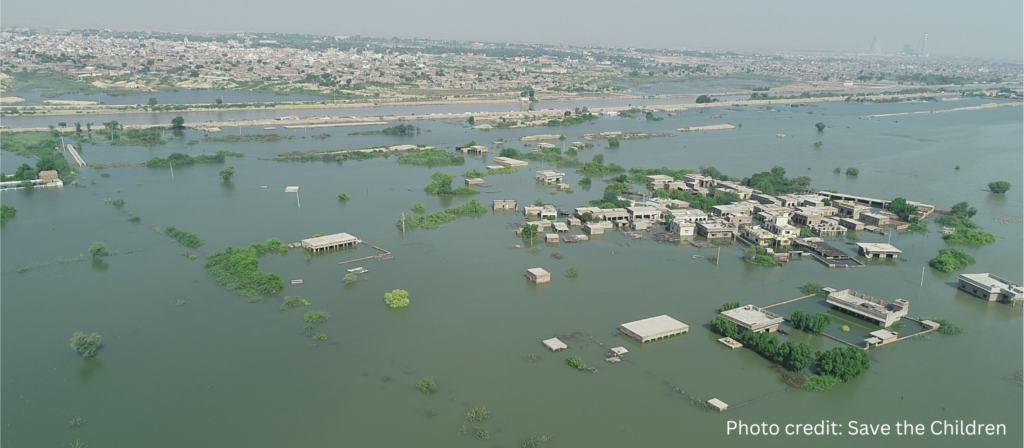Flooding in Pakistan: Fears for Nutrition and Food Security
Devastating flooding in Pakistan has swept away crops and stockpiles and left large areas of farmland under water, deteriorating the precarious food and nutrition security in the country. The communities who were already living on the edge now need to cope with this sudden shock of lost livelihoods and agriculture, as the catastrophic flood has swept away 45% of the country’s cropland [1] and in some areas 80% of farm livestock have been lost [2].
The government, as well as humanitarian organisations and private sector, are providing rations of food items to affected communities. However it is reported that still significant proportions of people are forced to live on only one meal a day or even less.
SUN Civil Society Alliance (CSA) members’ organisations are involved in relief activities across provinces,facilitating government authorities and private humanitarian organisations in needs assessment and distribution of relief items and medical facilities. Nutrition International, which hosts the Civil Society Alliance, developed and shared the ‘Nutritionally Balanced Ration Packages in Emergencies’ guidelines with government and humanitarian organisations involved in food distribution.
The SUN Focal Point in Pakistan has said:
“Pakistan was hit with devastating floods which have vanished not only lives but livelihoods. A country with a huge number of the population having limited physical and economic access to diversified food is now expected to experience severe shortage of foods which will result in a triple burden of malnutrition. Hence, an effective multi sectoral well-coordinated response is a must.”- Dr. Nazeer Ahmed, SUN Government Focal Point Pakistan/ Chief Nutrition; Ministry of Planning Development and Special Initiatives
Malnutrition was already prevalent among young children, adolescents and pregnant and lactating women living in flood-affected areas prior to the monsoon. An increase in cases of malnutrition is expected as a result of this heavy spell, as millions of people displaced by the floods are living under the sky with stagnant flood waters, leading to water borne diseases, including acute diarrhoea, which consequently contribute to malnutrition.
In the long run, food shortages are looming in the country as a sizable fraction of food storage has been destroyed, along with significant damage to the staple crops. According to the International Rescue Committee, 65% of Pakistan’s main food crops, including 70% of its rice, have been swept away during the floods [3].
Similarly, shortage of agriculture crops, particularly wheat, a staple food used by a large number of populations in the country, will likely lead to importing food which could in turn raise costs and reduce people’s buying power, particularly those whose finances are already shattered by the flooding.
In countries severely affected by climate change like Pakistan, the demarcation between humanitarian and development work is becoming meaningless. There is a need to build synergies between humanitarian and development organisations for comprehensive planning and response to lessen the impact of climate change. Given climate change and nutrition are so integrated, there is a need to build the capacity of civil society organisations on the response and mitigation of climate change on the ground.
The SUNCSA Pakistan Convener states,
“The magnitude of the current flood catastrophe, due to climate change, calls for urgent actions from the global community, to save millions of people including women, children and the disabled from becoming victims of food insecurity and malnutrition. The effects of this calamity will be felt for generations to come, if timely response is not extended.” – Dr Shabina Raza, Convener SUNCSA Pakistan
The devastation that has occurred due to the floods demands an urgent emergency response as well as a long term rehabilitation and development plan from the international community, with particular focus on food & nutrition security and livelihoods.
Learn how you can take action to support Pakistan here
[1] Ministry of Food Security and Climate Change
[2] International Committee of the Red Cross
[3] Muslim times


